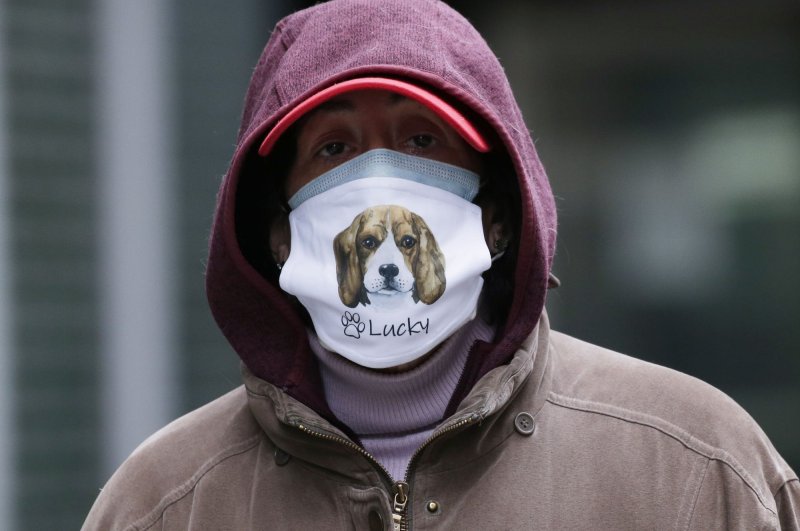As more people in the United States are vaccinated, experts say wearing masks and social distancing may continue to be part of the "new normal" for a while. File Photo by John Angelillo/UPI |
License Photo
March 25 (UPI) -- Wearing masks in public and practicing social distancing may be part of the "new normal" in the United States for a while, even as the percentage of those vaccinated against COVID-19 increases, experts from Johns Hopkins University said Thursday.
Although daily new case totals across the country have "plateaued" at about 50,000, the country will need to see a "continued decline in the number of [infections], hospitalizations and deaths" before restrictions can be relaxed, according to Keri Althoff, an associate professor of epidemiology at the Johns Hopkins Bloomberg School of Public Health in Baltimore.
In addition, more of the country will need to be vaccinated against the virus, she said during a conference call with reporters hosted by the school.
The United States will need to see a significant drop in new cases and increase in the numbers of those vaccinated "before we can start thinking about what a new normal will look like," Althoff told reporters on the call.
"We're not out of the woods yet, so even those who have been vaccinated need to continue to wear a mask in public and practice social distancing," she said.
As of Wednesday, 85.4 million people in the United States have received at least one dose of a COVID-19 vaccine, and 46.3 million people, or 14% of the population, are fully inoculated against the virus, according to the Centers for Disease Control and Prevention.
Being fully vaccinated means they have received either one dose of the Johnson & Johnson vaccine or two doses of the vaccine from Pfizer-BioNTech or Moderna.
Although the vaccines have been found to prevent severe illness following infection in up to 95% of recipients, that does not mean those inoculated are completely protected from the virus or are unable to pass it to others, said health policy expert Colleen L. Barry, who also was on the call.
Because it remains unclear whether the vaccines help reduce spread remains, those vaccinated should continue to wear masks to protect the people around them, said Barry, chair of the department of health policy and management at the Johns Hopkins Bloomberg School of Public Health.
"The concern is not the vaccinated people themselves but everyone else," she said.
In addition, even those vaccinated will need to hold off on international travel to avoid bringing new variants of the virus elsewhere, or home with them, Althoff said.
"Much has been made about the partisan divide" in support for strategies designed to limit the spread of COVID-19, such as mask-wearing, social distancing and travel restrictions, Barry said.
But she noted that more than 75% of people surveyed by she and her colleagues as part of a study they published in December indicated that they understood the need for these measures.
Such support will need to continue because "this is a process, not a light switch, where we can turn off COVID-19 and turn on what our life used to be like," she said.















